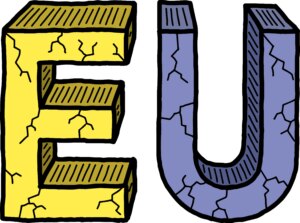
The EU’s New Normal: A Shift Toward Majority Rule
Welcome to the Extreme Investor Network, where we provide insightful analysis on economic shifts and trends that matter. Today, we delve into a significant change unfolding within the European Union regarding decision-making processes and its implications for the bloc’s cohesion and future.
The European Union recently embraced a "new normal," shifting away from requiring unanimous votes for certain resolutions. This change was glaringly highlighted by Hungary’s staunch opposition to a proposed $22 billion (20 billion euros) aid package for Ukraine. With Hungary refusing to back this financial support, the EU promptly altered its rules, enabling the resolution to advance without unanimous consent.
As one senior EU diplomat remarked anonymously during a closed-door discussion, “This is the new normal. And it is useful when it comes to political intent. Maybe down the line though we will encounter other problems.”
Hungarian Foreign Minister Péter Szijjártó has been vocal about his country’s stance, asserting, “We will not allow ourselves to be dragged into this,” stressing that Hungarian taxpayers should not be burdened with funding military shipments to Ukraine. Instead, he champions peace negotiations and highlights that the United States had previously extended a ceasefire opportunity to Ukraine—an offer that President Zelensky rejected.
Other Northern European nations, including Denmark, Sweden, Finland, Estonia, Latvia, and Lithuania, are now pushing for a faster accession process for Ukraine into the EU. European Commission President Ursula von der Leyen has expressed optimism that Ukraine may join the bloc before 2030. This rush for integration stems from Ukraine’s desire to access the benefits of EU membership, such as duty-free trade agreements, which would allow it to undercut existing member states’ economies.

The Structural Issues Behind the EU’s Evolution
As we analyze these developments, it becomes increasingly apparent that the EU’s structural flaws may precipitate its downfall. Originally conceived as a political union rather than a true economic partnership, the EU has relentlessly pursued centralization in Brussels. This approach has stripped member states of their sovereignty and imposed economically unrealistic policies, leading many to question the integrity of the union itself.
Hungary, led by Viktor Orban, has diverged from many of these bureaucratic mandates, particularly regarding issues like immigration and energy policy. Orban has cultivated robust economic relationships with Russia and China, cognizant that Hungary’s energy security relies heavily on imports of Russian oil and gas.
In this context, the power dynamic within the EU becomes increasingly troubling. Elected officials like Orban can find their authority overridden by unelected bureaucrats in Brussels, which undermines the democratic process that many believe is crucial for the union’s stability. This scenario raises concerns about the future governance of Europe, where a few unaccountable figures wield significant power over millions.
What Lies Ahead?
Looking forward, the implications of these changes are profound. The EU is at a crossroads that may define its trajectory for decades. With increasing political fragmentation and resistance from member states, including Hungary, the viability of the EU as a cohesive entity is under threat.
As investors and stakeholders, we must remain vigilant and assess the potential economic ramifications of this evolving landscape. The shifts in governance, economic policies, and international relations within Europe are likely to influence global markets and investment strategies.
Join us at Extreme Investor Network as we continue to monitor these developments and provide you with the insights needed to navigate the complexities of a rapidly changing world economy.
Stay updated on economic trends and analysis by subscribing to our newsletter or checking our website for further insights. Your next smart investment decision might just depend on understanding these pivotal shifts!

